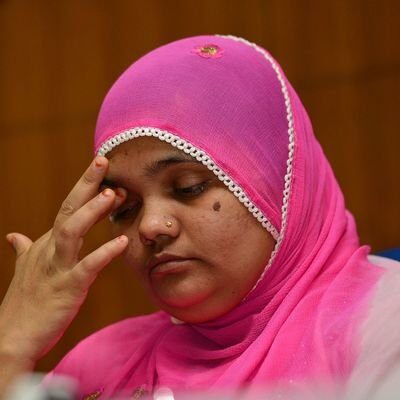New Delhi, Nov 30.
Bilkis Bano, who survived a horrific gang-rape and murder attempt during the 2002 Gujarat riots, on Wednesday moved the Supreme Court challenging the recent en masse release of the perpetrators of the crime.
Her pleas will be heard by a bench led by Justice Ajay Rastogi, Chief Justice of India D.Y. Chandrachud said, when her lawyer Shobha Gupta mentioned these pleas in court early today.
The Gujarat government released the 11 convicts who were convicted by the trial court, High Court and the Supreme Court for their heinous crimes, on Aug 15, 2022, to mark the independence-day celebrations.
The state claimed that the central government had cleared the move and that they were being released under an earlier remission policy, dated July 9, 1992, which was in existence at the time of their crime.
In her review plea, she has sought an open court hearing on the issue of whether the top court could have asked the Gujarat state to take a call on their remission when they were tried under the top court’s orders in Maharashtra.
A top court bench led by Justice Ajay Rastogi had on May 13, 2022, asked the Gujarat government to take a call on the issue of granting the rape-murder convicts pre-mature release.
In her review plea, Bilkis Bano, claimed that she was not informed of their plea for premature release.
“… the state of Gujarat has shown exceptional level of leniency and non-application of mind on the factors which are necessary to be looked into and examined while considering premature release of the 11 convicts, including Respondent no. 3 herein,” she said in her review.
Though she spent an extremely excruciating 17 years fighting a legal battle to ensure that her culprits are punished, she still doesn’t have the relevant documents to challenge their release, she attributing the delay in filing the plea before the top court.
She argued that the convicts concealed important documents from this court necessary for proper adjudication of the review and sought permission to bring on record additional facts.
The convicts did not disclose the egregious nature of their crimes, she said. This was nothing less than deliberately playing fraud upon this court to procure a favorable order.
They also concealed the fact that the top court itself had referred the case for a probe to the CBI when the state police couldn’t trace the accused.
The CBI probe had thrown up shocking deliberate acts by police officials and doctors to frustrate the investigation, she pointed out.
The convicts raped her and her sister, murdered 8 minors apart from other adults in the family, virtually eliminating her whole family.
She survived the horrific and inhuman brutality only because she became unconscious and the accused thought she had died.
Their plea for premature release, also “very cleverly concealed name of the prosecutrix”, who is still alive in larger public memory as a symbol of the extreme level of inhuman brutality and violence which she went through during the Gujarat riots. She was then only 20 and 5 months pregnant.
The Gujarat High Court had dismissed the convicts’ plea for release on the ground that it could only be considered by Maharashtra. However, the top court set it aside even when no appeal was filed against that judgement. Instead, the convicts filed a fresh writ challenging the High Court order.
Even if Gujarat was the appropriate government to take a call on her release the 1992 policy could not have been used when it was cancelled by another circular dated May 8, 2003, she said, and urged the court to undo the error apparent in the case and give her a fresh hearing.
In another fresh writ petition filed under Article 32, which guarantees every citizen the right to constitutional remedies, Bilkis sought an order quashing the en masse remission order of the state passed on Aug 10, 2022.
This was a “mechanical order of remission” which completely ignored the requirement of law as consistently laid down by this court, her plea said.
The en masse premature release of the convicts has shaken the conscience of the society and resulted in a number of agitations across the country, she said.
The top court has earlier declared that en masse remissions were not permissible and that remission could not be sought or granted as a matter of right of the convict without examining the case of each convict individually based on their peculiar facts and role played by them in the crime, she said.
She said that she was entitled to move this court for relief as the “unfortunate victim of the crime” to undo the injustice caused to her and society at large by way of the premature release order.
Bilkis said that the premature release of all the convicts came as a shock to her, her grown up daughters, to her family, and also society at large.
The worst part was that nobody, not even Bilkis, who was the victim of the crime, had any inkling about any premature release sought by the accused.
She said that she was extremely hurt, disturbed and dejected by the early release as it brought back the trauma she was subjected to. Her first reaction was that of shock and fear for family’s safety.
She said the convicts were responsible for some of the most gruesome crimes of extreme inhuman violence and brutality any group of human beings could inflict upon another group of human beings, all helpless and innocent people.
“… most of them were either women or minors, by chasing them for days together persuaded by hate towards a particular community,” and did not deserve to be released.

